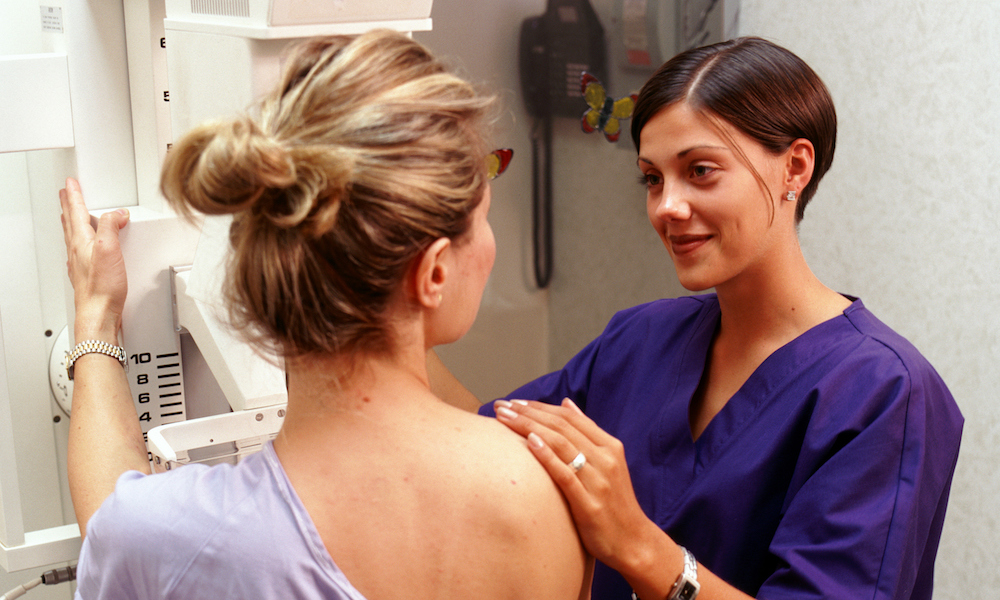Helping Maine & New Hampshire women beat breast cancer for more than 50 years.

Breast cancer is one of the most common cancers among women everywhere, and New England is no exception. But it's more treatable than ever, especially if caught early. More than 3 million American women living today have had some experience with breast cancer.
At New England Cancer Specialists, we treat more women with breast cancer than anyone else in Maine & New Hampshire and we now have more tools to treat it than ever before: genetic counseling, precision medicine, immunotherapy and clinical trials of advanced new medicines.
Early detection and treatment are our allies.
We know that catching breast cancer early is more important to your health than anything we can do. So talk to your doctor today about getting regular breast health exams. And learn what you can do that may lower your risk of getting cancer in the first place—start with the information at right from our partners at the American Cancer Society.
7 Tips to Lower Your Risk of Getting Breast Cancer:
- Keep Your Weight in Check: In particular, being overweight or obese after menopause increases breast cancer risk.
- Be Physically Active: In one study from the Women’s Health Initiative, as little as 1¼ to 2½ hours per week of brisk walking reduced a woman’s risk by 18%.
- Avoid Post-Menopausal Hormones: For more information about this topic, see Menopausal Hormone Therapy and Cancer Risk.
- Breastfeed: Studies suggest that breastfeeding may lower breast cancer risk, especially if it’s done for at least a year.
- Limit Your intake of Alcohol: Drinking alcohol is clearly linked to an increased risk.
- Know Your Family’s History of Cancer: This can help your doctor make the best monitoring recommendations for you.
- Don’t Smoke: Smoking may increase breast cancer risk, and is a major risk factor for other cancers and diseases.
Guidelines for Breast Cancer Screening:
The guidelines for breast cancer screening have evolved over the years in light of the potential risks of screening versus the benefits. Risks include false-positive test results that can lead to overdiagnosis and subsequent overtreatment.
The following guidelines, which apply to women of average risk of developing breast cancer, are based on the recommendations of the United States Preventive Services Task Force (USPSTF): Final Recommendation Statement, Breast Cancer: Screening. Generally speaking, the USPSTF found adequate evidence that mammography screening reduces breast cancer mortality in women age 40 to 74 years — more so in some age groups than others.
Women age 40 to 49: The decision to start screening mammography prior to age 50 should be an individual one, in consultation with your doctor.
Women age 50 to 74: The USPSTF recommends getting a mammogram every other year.
Women 75 and older: Current evidence is insufficient to assess the balance of benefits and harms.
Assessing your risk and the need for screening
Age, family history, and the presence of lumps or other symptoms all affect the assessment of risks vs. benefits of screening. Should you have any questions about the need for breast screening, talk to your doctor about the best screening plan for you.

What about men?
Men also get breast cancer, but only about one-tenth as often as women. Routine screening is not recommended, but men should become familiar with the feel of their breast area, and tell their doctor if they ever feel a lump or other changes.
Information from the American Cancer Society


